Media
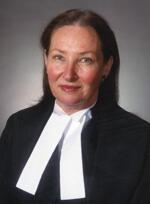
Rosalie Silberman Abella
Rosalie Silberman Abella became Canada’s first Jewish woman judge and youngest ever judge in 1975 at the age of twenty-nine. She headed a ground-breaking 1984 commission which pioneered the theories of equality and discrimination. In 2004 she became the first Jewish woman to sit on the Supreme Court of Canada.
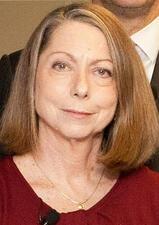
Jill Abramson
As the first female executive editor of the New York Times from 2011–2014, Jill Abramson fought to change the newspaper’s culture, mentoring female reporters, choosing female bureau chiefs and focusing more attention on stories about race and gender issues.
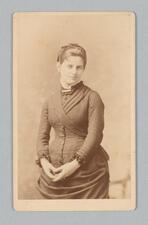
Helen Goldmark Adler
Helen Goldmark Adler is remembered for her philanthropic achievements and her marriage to Felix Adler, philosopher and founder of the Ethical Culture Movement. In turn-of-the-century New York, Adler penned articles, established a free kindergarten for children with working-class parents, and founded an organization focused on the science of child-rearing.
Mildred Elizabeth Levine Albert
Mildred Albert charmed the fashion world as an international fashion consultant, lecturer, columnist, and radio and television personality. She carved a niche for herself in the fashion world as the head of a modeling agency and an inventor of new kinds of fashion shows.
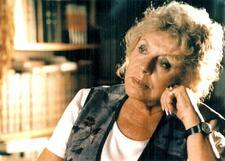
Shulamit Aloni
Shulamit Aloni, Member of the Knesset and Minister, was an important champion of human rights, civil rights, religious freedom, and the Palestinian right to self-determination. As founder and head of the Ratz and then Meretz party, she spearheaded progressive politics in Israel both on the formal level and in civil society for over half a century.
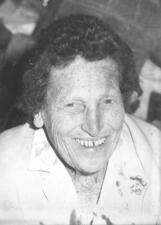
Tikvah Alper
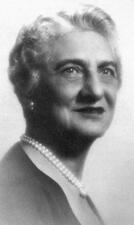
Rose Haas Alschuler
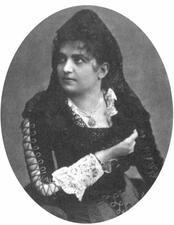
The American Jewess
Published between 1895 and 1899, The American Jewess was the first independent English-language magazine published by and for Jewish women in the United States. Founded by Rosa Sonneschein and closely tied with the National Council of Jewish Women, the magazine discussed issues of fundamental importance to middle-class Jewish women.
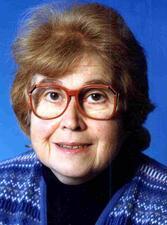
Ziva Amishai-Maisels
Ziva Amishai-Maisels is an Israeli/American art historian whose research on modern Jewish and non-Jewish art and on the impact of the Holocaust on art are an outstanding contribution to the study of art.
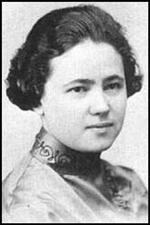
Anarchists, American Jewish Women
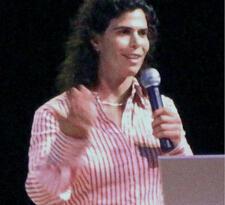
Yael Arad
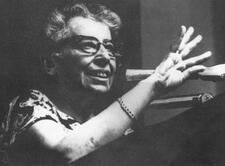
Hannah Arendt
Brilliant and controversial, Hannah Arendt was a German-trained political theorist whose books exerted a major impact on political theory in North America and Europe. The Origins of Totalitarianism (1951) made her an intellectual celebrity in the early years of the Cold War. She was the first woman to become a full professor at Princeton University.
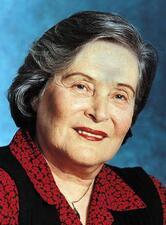
Ruth Arnon
Immunologist Ruth Arnon and her team made unprecedented breakthroughs when they developed the first synthetic antigen and the first drug approved for treating multiple sclerosis, Copaxone. Arnon also invented a synthetic, nasally administered flu vaccine and has published over four hundred articles, chapters, and books on immunology and biochemistry.
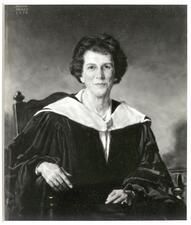
Margaret Gene Arnstein
Margaret Gene Arnstein was a principal architect of the American nursing profession. Her belief that nurses should be involved in health policy and research helped transform her profession. Renowned for her work in public health, Arnstein also advanced nursing education and research.

Patricia Arquette
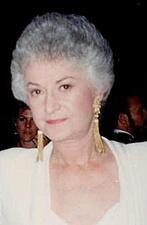
Bea Arthur
Bea Arthur began and ended her illustrious career on the stage, with critically acclaimed roles in Fiddler on the Roof and Mame in the 1960s and a one-woman Broadway performance in the 2000s. But she became a feminist and gay icon with her Emmy-award-winning television situation comedies from the 1970s through the 1990s: All in the Family, Maude, and The Golden Girls.
Dora Askowith
Dora Askowith, author, historian, and college educator, believed that a knowledge of Jewish women’s history would serve as a catalyst for organization, activism, and moral leadership. She taught women at Hunter College for a total of forty-five years and wrote that she was anxious to teach college students Jewish history because they were “poorly versed in the history of their own faith.”
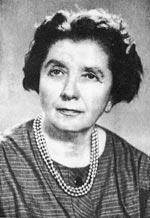
Rokhl Auerbakh
Rokhl Auerbakh (1903–1976), a member of the Polish-Jewish literary elite, ran a soup kitchen in the Warsaw Ghetto while simultaneously recording the voices of its captive inhabitants in her writing. She ultimately survived the war by passing herself off as an "Aryan," and went on to found the Department for the Collection of Witness Testimony at Yad Vashem in Jerusalem.
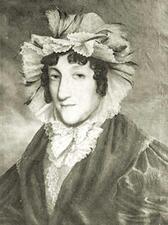
Australia: 1788 to the Present
The first Jewish women, like the first Jewish men, arrived in Australia on the very first day of European settlement in 1788. Those convict pioneers were followed by free settlers who made Jewish communal and congregational life viable and helped to develop the vast continent. Jewish women have made significant contributions to Australia's national story.
Sophie Cahn Axman
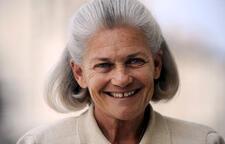
Elisabeth Badinter
Elisabeth Badinter is one of France’s most prominent and controversial philosophers. Among her most important contributions figure her numerous writings about feminism and gender relations, which emphasize the importance of “equality through resemblance,” as well as her historical works on the Enlightenment.
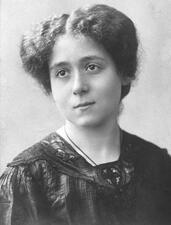
Bertha Badt-Strauss
A religious German-Jewish writer, intellectual, and ardent Zionist, Bertha Badt-Strauss was one of the first women to earn a doctoral degree in Prussia. She was a prolific writer, publishing hundreds of articles over the course of her lifetime, and was very involved in the “Jewish Renaissance” cultural movement. She was dedicated in particular to illuminating the diverse experiences of Jewish women past and present.

Cora Baird
In a reverse of the usual sequence of events, Cora Eisenberg Baird started playing with dolls when she grew up and married puppeteer Bil Baird. They performed at the 1939 and 1940 World’s Fairs and in the 1941 Ziegfeld Follies. They created educational and public service films and founded the American Puppet Arts Council.
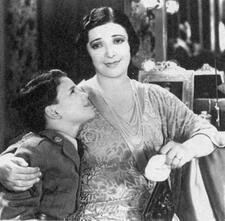
Belle Baker
Belle Baker has been described as a famed torch singer and vaudeville star, as well as a Yiddish, Broadway, and motion picture actor. Among the songs associated with her are “Eli Eli” and “My Yiddishe Mama.” Her resonant voice made her the first choice of many composers to debut their songs, and she helped to introduce 163 songs to the public throughout her career.
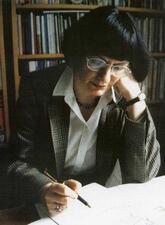
Zsófia Balla
In Hungary, Zsófia Balla is considered one of the greatest women poets. Her lyricism is mixed with grotesque playfulness along with fragmented, ironic, prose-like sequences. Due to her outspoken and down-to-earth character, she plays a large role in shaping contemporary Hungarian literature.


